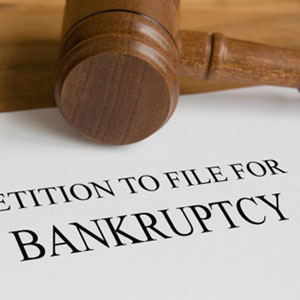Bankruptcy In New Jersey: Your Options And The Filing Process
 In this article, you can discover:
In this article, you can discover:
- How to determine the appropriate chapter under which you should file for bankruptcy.
- The differences between Chapter 7 and Chapter 13 and their impact on assets.
- Your options as a homeowner to manage your mortgage or avoid bankruptcy.
What Is The First Step When Filing For Bankruptcy In New Jersey?
Initiating the bankruptcy process in New Jersey involves deciding whether you should file under Chapter 7 or Chapter 13. Chapter 13 may be the only option if your income exceeds the threshold for Chapter 7, or if you possess non-exempt equity in their property.
Why Would Someone File For Chapter 13 Instead Of Chapter 7?
Chapter 13 is often selected by individuals who do not meet Chapter 7 eligibility, typically due to higher income or significant non-exempt equity in their home. This bankruptcy chapter is also useful for managing mortgage arrears by spreading them across a five-year period, provided you can maintain current mortgage and trustee payments.
What Are The Key Differences Between Chapter 7 And Chapter 13 Bankruptcy?
Chapter 7 is characterized by asset liquidation, allowing you to retain exempt assets. In both Chapters 7 and 13, trustees evaluate your property value, subtract your mortgage and sale costs, and apply exemptions. If non-exempt equity exists, Chapter 7 may lead to property sale, while Chapter 13 allows you to repay the equivalent value to creditors and avoid sale.
How Does Bankruptcy Affect Homeownership When My Mortgage Is Greater Than The Property’s Value?
In Chapter 7, being “underwater” on your mortgage leads to the discharge of the personal obligation to repay the loan, though the lien remains. The bankruptcy shields you from deficiency judgments, but does not eliminate the lien, which must be addressed through a sale, short sale, or foreclosure.
What Are The Alternatives For Homeowners Seeking To Avoid Bankruptcy?
The primary alternative to bankruptcy for homeowners wishing to retain their home is mortgage modification. This involves negotiating with your bank for more favorable mortgage terms, such as extending the mortgage term or reducing interest rates. Your other options include a short sale or a deed in lieu of foreclosure, both of which release you from the mortgage obligation.
How Does A Chapter 7 Trustee Manage Non-Exempt Equity?
A Chapter 7 trustee will sell your property with non-exempt equity, distributing the exempt portion to the debtor and using the remainder to pay your creditors. Any surplus post-creditor payment reverts to you, as the debtor. Conversely, a Chapter 13 trustee focuses on your plan to pay non-exempt equity to creditors, allowing you to maintain homeownership.
For more information on Filing For Bankruptcy In New Jersey, an initial consultation is your next best step. Get the information and legal answers you are seeking by calling (732) 733-2830 today.

CALL NOW FOR A PERSONALIZED CASE EVALUATION
(732) 733-2830
